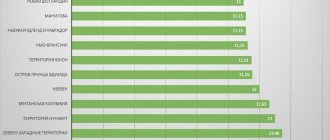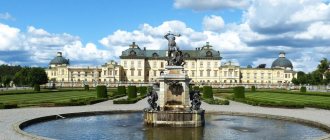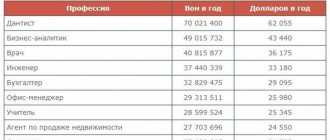Foreigners in Canada
Hundreds of thousands of immigrants arrive in the country every year, but Canada welcomes this. They have even drawn up a plan for immigration, and it covers not only labor migrants - in-demand workers in the necessary professions, but also those who move to live with relatives. In recent years, the “plan” for professional migration is about 200 thousand people a year, and about a hundred thousand more go to their local relatives. Together we get about 300 thousand - that’s almost a percentage of the entire population of the country every year!
There are 43 major ethnic groups in the country, and less than half the population calls themselves Canadian. In addition to people from Great Britain, Ireland and France - the countries from which the ancestors of most modern Canadians came, there are many Germans, Italians, and Chinese in the country. In addition, Canada is considered the third country in the world in terms of the number of Ukrainians: they make up about 3% of the local population. About the same number of Poles. There are approximately 1.5% Russians in Canada.
For those who intend to stay in the country for a long time, the main options are study or work. In 2021, Canada issued more than 475,000 temporary work permits and extensions. Also this year, more than 800 thousand foreigners studied in the country (in educational institutions of all levels, starting from primary school).
Types of emigration
- Express Entry Program.
In 2015, the country launched an electronic system for selecting immigration applicants called Express Entry. Its key task is to assess foreigners as objectively as possible in order to issue them a Canadian residence permit. To use the system, you need to go to the official Internet resource of the Ministry of Citizenship and Immigration Canada, register on the website, pass a series of tests and get an assessment of its usefulness for the country. Holders of a high score from the Express Entry system are almost guaranteed to receive a residence permit. After testing, you receive an invitation to apply for a residence permit by email. - Higher education.
Foreigners do not require a residence permit to study at universities. However, after receiving a diploma, a graduate can obtain a residence permit to stay in the country and work for 1 year in his specialty. When concluding a contract with an employer, the permit can be extended on the basis of employment. - Reunion with family.
Holders of resident status have the opportunity to invite their relatives to Canada. A residence permit on this basis can be obtained by spouses, parents, grandparents, as well as children under 22 years of age. In this case, the inviting party undertakes to provide financial support for their relatives. - Official employment.
Canada issues residence permits to highly qualified workers who have a diploma, speak the official language well, and have worked more than 1,560 hours in the past year. Candidates invited by a Canadian employer (skilled trades) can also apply for the status. - Investments.
The basis for a residence permit may be investment. In the first case, the applicant needs to demonstrate the availability of an idea and finances for its implementation. Investors are required to invest more than 1,200,000 Canadian dollars in one of the government programs for a period of 5 years. - Refugee.
Provided under a simplified scheme to persons who are subject to persecution, oppression or danger in their home country. A refugee is not required to know the language, have finances or have a place to live in Canada. Moreover, after receiving a residence permit, he receives the right to social assistance, employment, education or starting a business.
Visa regime in Canada
Citizens of most countries around the world require a visa to visit Canada. The legal basis for the issuance of visas and residence permits is set out in the Immigration and Refugee Protection Regulations, in force since 2002.
Holders of passports from a number of European countries, Caribbean countries, the USA and some others have the right to visa-free entry. This does not apply to Russia, Ukraine, Belarus.
The visa system in Canada is somewhat different from the European one. Apparently, taking into account the fact that most visa recipients arrive in the country from overseas - from Europe or Asia - and two weeks will not be enough for them, a short-term visa here can be given for six months at once.
Temporary visa
So, short-term visas are issued for up to six months. The name of this document is visitor visa or temporary resident visa. In fact, this is already a short-term residence permit. The type of visa depends on the purpose of visiting the country: it can be tourist, study, work, guest, business. If you are going for short-term study, there is no need for a separate study permit.
Visas can be single or multiple entry – valid for multiple entries into the country. The visa fee for them is the same, and the applicant does not need to indicate which option he is applying for. Initially, all applications are considered for a multiple-entry visa, but in some cases the migration service issues a single-entry visa. A multiple-entry visa allows you to stay in the country for up to six months over a ten year period.
Visas are issued by embassies and consulates at the foreigner’s place of residence, or you can also contact visa centers.
Who issues visas?
- Embassy in Moscow - citizens of the Russian Federation, Armenia, Uzbekistan
- Embassy in Kyiv - citizens of Ukraine
- Embassy in Warsaw – citizens of Belarus
- Embassy in Nur-Sultan - citizens of Kazakhstan
You can also apply for a visa online.
For property owners
Purchasing real estate in Canada does not give its owner a preferential right to obtain a residence permit, permanent residence or any visa benefits.
However, if you plan to live in Canada, purchasing an apartment or house is worth considering. Find out how to do this in our article.
Examples of real estate in Canada
Apartment in Montreal, Canada €137,233 Area 24 m2, 1 room Barnes
Apartment in Montreal, Canada €192,375 Area 33 m2, 3 rooms Barnes
Apartment in Montreal, Canada €210,871 Area 48 m2, 5 rooms Barnes
Townhouse in Vancouver, Canada €216,008 Area 87 m2 Russia Sotheby's Intern…
Apartment in Montreal, Canada €273,453 Area 50 m2, 4 rooms Barnes
Apartment in Montreal, Canada €294,216 Area 54 m2, 8 rooms Barnes
Apartment in Montreal, Canada €307,270 Area 67 m2, 5 rooms Barnes
Apartment in Montreal, Canada €311,286 Area 60 m2, 4 rooms Barnes
Apartment in Montreal, Canada €313,964 Area 92 m2, 6 rooms Barnes
House in Canada €360,824 Area 160 m2, 11 rooms Barnes
Apartment in Montreal, Canada €367,519 Area 124 m2, 7 rooms Barnes
Apartment in Montreal, Canada €367,519 Area 78 m2, 7 rooms Barnes
Apartment in Montreal, Canada €384,924 Area 102 m2, 7 rooms Barnes
Apartment in Canada €384,924 Area 258 m2, 16 rooms Barnes
Apartment in Montreal, Canada €387,602 Area 71 m2, 3 rooms Barnes
Apartment in Montreal, Canada €391,618 Area 81 m2, 5 rooms Barnes
Apartment in Montreal, Canada €400,990 5 rooms Barnes
Apartment in Montreal, Canada €400,990 Area 62 m2, 4 rooms Barnes
Apartment in Montreal, Canada €414,379 Area 95 m2, 9 rooms Barnes
House in Canada €421,073 12 rooms Barnes
View 141 more similar properties
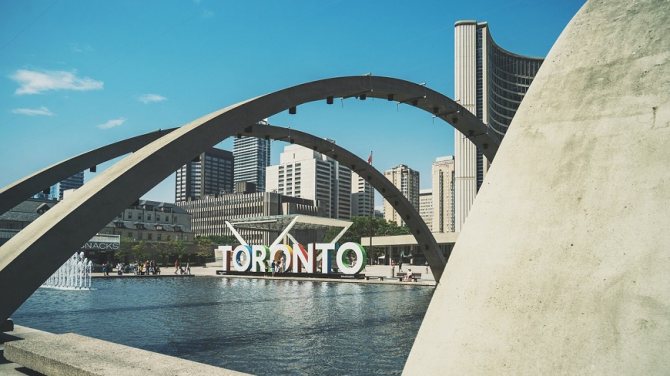
Ways to obtain a residence permit
Winning the Express Entry competition is difficult, as hundreds of thousands of applicants apply each year. Therefore, Russians, like citizens of other countries, can use other methods to obtain a residence permit and the right to permanent residence:
- reunification with relatives who have resident status, i.e. those who have received a residence permit in Canada, permanent residence or citizenship of the country (a spouse, parents, children under 22 years of age, and grandparents can apply for a residence permit on this basis);
- employment as a highly qualified specialist (mandatory conditions are a diploma, excellent knowledge of the language, and a period of work in Canada in the previous year of at least 1,560 hours);
- investments in government programs in the amount of more than 1.2 million Canadian dollars for a period of 5 years, or the provision of a business plan with financial support;
- refugee , if facts of persecution or oppression are confirmed in the country of primary residence, the presence of danger (this method allows you to obtain a residence permit and permanent residence in a simplified manner, and take advantage of social support measures from the state);
- Higher education obtained at universities in Canada will allow you to work for 1 year in your specialty, after which you can count on a residence permit for employment.
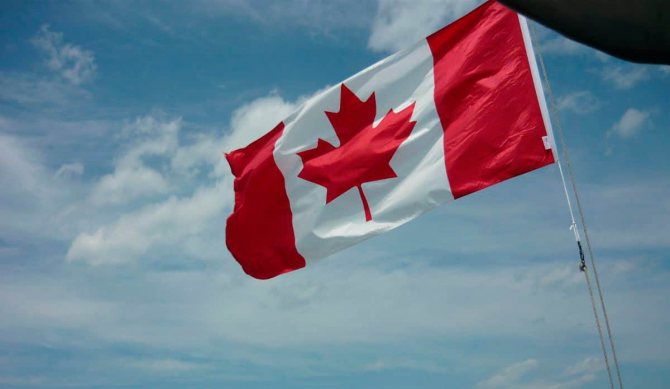
A residence permit is given after graduating from a university and working in your specialty
Until 2014, the right to a residence permit was given by the purchase of real estate. However, in 2020, owning real estate is not a guaranteed way to immigrate. Proof of purchase of real estate will be considered an additional advantage for Express Entry or business plan submission.
Long-term visa
If you are coming to Canada for a period of six months to several years, you will be issued a long-term non-immigrant visa - the equivalent of a permanent residence permit. Depending on the purpose of the move, visas will have different types, validity periods, requirements for obtaining and additional documents. So, if you come for the purpose of work or study, you will need to obtain the appropriate permission. In addition, all long-term visitors must undergo a medical examination at an accredited medical center.
Documentation
The list of required documents is generally standard.
- Foreign and internal passports (for a child – birth certificate).
- Photos (two or three pieces, depending on the type of visa).
- Medical insurance with coverage starting from $30 thousand. In some cases, the minimum amount will be increased.
- Confirmation of sufficient funds. For a tourist it is calculated based on the amount of $70 per day. You will need to present an account statement, a certificate of employment, a letter from a sponsor or other supporting documents.
- Certificate of marital status.
- Certificate of no criminal record.
- Certificate from work.
- Receipt for payment of the visa fee.
Foreign language documents must be translated into English or French and notarized.
Procedure for obtaining a long-term visa
Documents for such a visa can also be sent to the Canadian embassy or consulate in your country or processed through a visa center. In addition, you will need to submit biometrics.
Visa costs
- Temporary Resident Visa – 100 CAD ($75)
- Study permit (+ temporary resident visa) – 150 CAD ($113)
- Work permit (+ temporary resident visa) – 155 CAD ($117)
- Temporary Resident Permit – 200 CAD ($150)
- Visa Application Center Fee – 31.2 CAD ($23)
- Additional Visa Application Center Service Fee – CAD 4.04 ($3)
- Biometrics – 85 CAD ($64)
There are no clear deadlines for obtaining a visa. As experts say, if you submit an application online, the answer can come within a week, through a visa center - about two weeks. However, sometimes you have to wait more than a month for a response.
The visa center helps to collect the necessary package and prepare the documents correctly, but does not guarantee a visa.
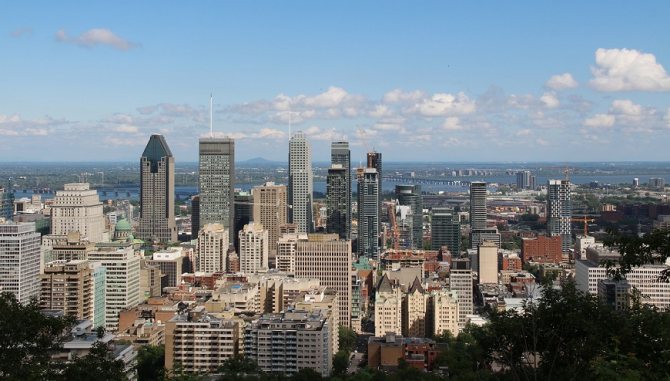
Grounds for granting a residence permit in Canada
Foreigners who can confirm that they have sufficient grounds to reside in the country have the right to apply for a permit.
Some time ago, changes were made to Canadian immigration legislation, so foreign citizens interested in how to obtain a residence permit in Canada need to carefully familiarize themselves with the existing grounds for moving.
The most popular reasons for applying for a residence permit are entrepreneurship, work, family reunification and refugee.
Buying a property
Many foreigners consider the purchase of real estate as a sufficient reason to move. Having your own home is a plus for a person planning to move, but in accordance with Canadian legislation, a residence permit is not issued when purchasing real estate.
Family reunification
Persons who have relatives in Canada who are residents of this North American state can obtain a residence permit for the purpose of family reunification. To move, a foreigner must provide an invitation from the Canadian side and certificates confirming the presence of family ties.
Obtaining a residence permit in Canada requires confirmation of the financial solvency of the applicant. If he does not have sufficient funds, his relatives must pay for living expenses.
A spouse (they must be officially married), parents, children (no more than 22 years old), and grandparents can count on a permit for family reunification. A foreign citizen invited by a Canadian resident should not have problems with the law.
If you move by marriage to a Canadian citizen, your spouse will be able to obtain citizenship after 3 years. You will first need to prove that the marriage is not fictitious.
For refugees
Registration of a Canadian residence permit is available to persons who are subject to persecution in their home country for political, national and other reasons.
The permit issued to refugees provides the opportunity to find a job, undergo training, do business and provides access to social guarantees (legal support, medical care, etc.).
Refugees do not need to confirm their level of proficiency in the state language and the availability of sufficient financial resources.
Job
Foreigners who move to the country for work have the right to obtain a residence permit. The basis for issuing a permit is official employment. It should be noted that Canada is interested in attracting specialists with a high level of professionalism and work experience.
The advantages of working in the country are the opportunity for professional self-realization and high wages.
Professional migration is carried out under the Express Entry program and involves providing applicants with an invitation from the ministry. The program involves taking assessment tests online.
If the candidate meets the requirements and the usefulness of his work for the economy of the state, the applicant can apply for a residence permit.
The relocation of skilled workers takes place under the Skilled workers program. The status applicant must meet a number of criteria: know the language and have at least 1,560 hours of work experience in the profession during the 12 months preceding the time of application (the type of Canadian professions for which participation in the program is allowed according to the NOC classification - O, A, B).
Doing Business
Canada is engaged in attracting foreign investment and welcomes the implementation of business projects on the territory of the state, therefore, if it is possible to fulfill a number of requirements, foreigners can open a company and carry out business activities on favorable terms.
To issue a permit, a Russian citizen will need to prove the existence of a viable business idea and the funds necessary to implement it. It is possible to extend the validity of the certificate if the company continues to operate and make a profit.
When moving based on an investment, a foreigner will need to provide evidence that the funds invested were obtained legally. The condition for issuing a permit is that the investor does not have problems with the law.
Visa options
Educational
If you are coming to Canada to study at school or university, you will need a study permit. The basis for its issuance is confirmation from the educational institution of your enrollment. As a rule, to obtain it you must pass exams. Only accredited schools and universities have the right to issue these documents.
At the same time, certificates and certificates of education received in the home country, and certificates of language courses are added to the standard package of documents.
A minor child can travel with a parent or a guardian will have to be found for him in Canada.
Extension and change of visa type
While in Canada, you can apply for a new temporary residence permit. This is done in cases where you need to extend your stay, change its type, or if you entered on a study/work visa, but are now changing your place of study/work.
Formally, this can be done online or in paper form no later than 30 days before the expiration of the first permit.
In fact, you must have sufficient grounds. These include an invitation from a university or place of work. You will need this type of document when changing locations or if you want to switch from a tourist visa to a work or study visa. However, there are significant limitations and failures are common.
Immigration programs to Canada - choose your relocation method
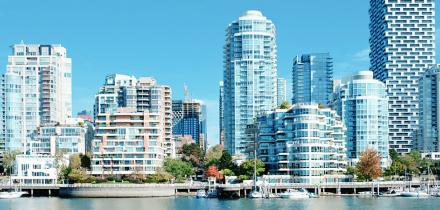
Canada Permanent residence in Canada for entrepreneurs - startup visa Duration of receipt: 12 months.
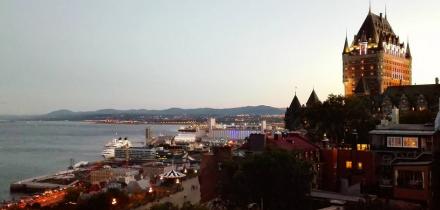
Canada Permanent residence in Canada for entrepreneurs under the Quebec program Duration of receipt: 24 months.
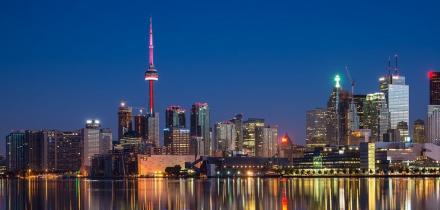
Canada Permanent residence in Canada for entrepreneurs under the Ontario program Duration of receipt: 48 months. Expenses from $150,000

Canada Permanent residence in Canada for entrepreneurs under the Nova Scotia program Duration of receipt: 24 months. Expenses from $115,000

Canada Permanent residence in Canada under the Atlantic Pilot Program Duration of obtaining: 6 months. Expenses from 2,000 €
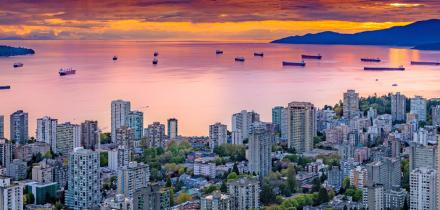
Canada Permanent residence in Canada for entrepreneurs under the British Columbia program Duration of receipt: 42 months. Expenses from $150,000
Canadian Citizenship
Features of living in Canada
Once your application to immigrate to Canada has been approved and you have received an immigrant visa, you must enter the country before the visa expires.
Once you arrive in Canada, you become a permanent resident while retaining your citizenship of your country. You do not become a Canadian citizen and you will be required to use a passport issued in your country of origin, including when traveling. Once you arrive in Canada, as a permanent resident, you must apply for a Permanent Residence Card (PRC), which will allow you to easily move within or outside the country. The first step to Canadian citizenship is obtaining Permanent Resident Status. However, a person can live their entire life in Canada as a permanent resident and not have to apply for citizenship. Canadian citizenship is not granted automatically!! Once you arrive in Canada on an immigrant visa, you must apply for a Permanent Residence Card (PRC). This application is made at the point of entry into Canada and sent to the Case Processing Centre, Sydney. Typically the application is reviewed within three months. The completed Card is sent to the Canadian Immigration Center closest to your place of residence, where you will have to pick it up in person.
Maintaining Permanent Resident Status As a permanent resident of Canada, you must meet certain residency requirements in Canada to maintain your status. To do this, you must be physically present in Canada for at least two years out of every five. Your stay outside Canada may be counted as qualifying if you are outside Canada for the following reasons:
- You are accompanying your spouse or common-law husband/wife who is a Canadian citizen;
- You are accompanying your parent who is a Canadian citizen;
- You are employed full-time by a Canadian company or a federal or provincial government agency in Canada;
- You are accompanying your spouse or common-law spouse who is a permanent resident of Canada and is outside Canada in connection with full-time work for a Canadian company or a federal or provincial government agency in Canada;
- You are a child living with a parent who is a permanent resident of Canada and is employed full-time by a Canadian company or a federal or provincial government agency in Canada.
As a permanent resident of Canada and outside of Canada, you will need to apply for a “Permanent Resident Abroad” to return if you do not have a valid Permanent Residence Card (PRC). When your application for Permanent Resident Abroad is reviewed, a determination will be made about your status to determine whether you meet Canada's residency requirements and whether you have the ability to meet them.
Citizenship As a permanent resident, you have the right to enter and live in Canada. You also have most of the rights of Canadian citizens under the Canadian Charter of Rights and Freedoms. However, you will not be able to run for political office or participate in elections until you obtain Canadian citizenship. A permanent resident of Canada remains a citizen of another country, no matter how long he lives in Canada, until he applies and receives Canadian citizenship. Canada recognizes dual citizenship and multiple citizenship, so you will not have to renounce your citizenship unless the laws of your country of origin do not allow citizens to have more than one citizenship.
To obtain Canadian Citizenship you must: – Have permanent resident status; – You must have lived in Canada for at least 3 years; – Must demonstrate good knowledge of the English language, customs and laws of Canada; – You must be over 18 years old; – You must personally undergo the Canadian Citizenship Ceremony (Take the Oath). Minors (under 18 years of age) are also eligible for Canadian citizenship, but they do not need to have resided in Canada continuously for 3 years or demonstrate English language proficiency. The application is submitted on behalf of the parents.
Obtaining permanent residence and citizenship on the basis of a long-term visa
Since a long-term visa is not an immigration visa, while in the country on its basis, you do not automatically receive the right to permanent residence. However, if you decide to connect your future destiny with Canada, a long stay in the country greatly simplifies this task. This primarily applies to temporary workers and school and university graduates.
For students, a residence permit for studies is often the first step towards obtaining permanent resident status. Thus, in 2021, more than 58 thousand foreign graduates of Canadian universities became permanent residents of the country.
To obtain permanent resident status, a student must apply to one of Canada's many immigration programs. Many of them are designed specifically for students and graduates of Canadian universities. In addition, you can participate in the general program for selecting in-demand workers - Express Entry. Here, graduates have good chances: they will receive additional points directly for their studies, and for living in Canada, and for knowledge of the language.
Similarly, work experience in Canada will be a great advantage if you apply for an immigration program. You will receive additional points when participating in the Express Entry system or will be able to participate in a special immigration program for those who have worked in Canada (Canadian Experience Class).
If you have become a permanent resident of Canada, the next step may be to obtain citizenship. To qualify, you must have lived in the country for a total of at least three years within the last five years.
Ways to obtain a residence permit in Canada in 2021
A Russian can apply for a residence permit in Canada on an equal basis with citizens of other countries. The main way to obtain resident status is a special program for selecting applicants (Express Entry). The competition is held within the quotas approved by the Government of the country.
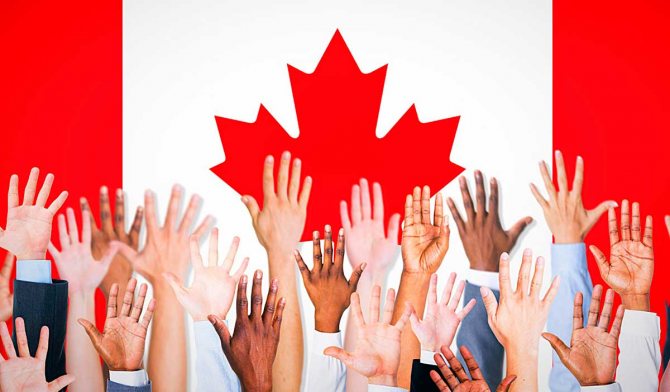
A Russian can also get a residence permit
Features of participation in the selection are as follows:
- to participate in the competition in 2021, you need to register and submit an application on the official website of the Ministry of Citizenship and Immigration Canada;
- to win the competition, you need to pass a test and provide information on a number of criteria, from the age and education of the immigrant, to the level of proficiency in the national languages of Canada (English or French);
- testing is carried out according to a point system, and the maximum score is 100 points.
The number of points scored determines the usefulness of the applicant for the country. To win the competition and receive an immigration visa and residence permit, you need to score at least 70 points. For persons who receive 59-70 points, an individual decision may be made to issue a residence permit.
Reasons for visa refusal
- One of the common reasons for refusal is an error in the preparation of documents, for example a photograph taken not according to the standard. Also, a refusal may occur due to a discrepancy between the purpose of the trip and the type of visa requested. In such cases, it is permitted to repeat the application.
- Lack of official income.
- Providing false information. This can result in an indefinite refusal.
- Lack of property in your home country or other reasons to return.
- Criminal record.
- Violation of migration laws of other countries.
- Dangerous infectious diseases.
More information about the forms and documents can be found on the Immigration Canada website (in English).
Is it necessary to obtain a residence permit to live in Canada?
Today, Canada attracts Russians with its living conditions, high income levels and the almost complete absence of the criminal segment. Moreover, residents of the state have a lot of opportunities to open their own business and develop it.
In other words, Canada is rightfully considered one of the most promising and comfortable countries for living. In this regard, it is not surprising that many citizens of other countries seek to leave their homeland and move there for permanent residence.

Of course, the moving procedure is not only about packing your suitcase and issuing a passport. To legally reside in the country, you will need to obtain a special document - a residence permit in Canada.
For Russians, as well as for citizens of other countries, a residence permit is mandatory, otherwise the visitor will be considered a violator of the country’s migration legislation and will be sent outside the country.
